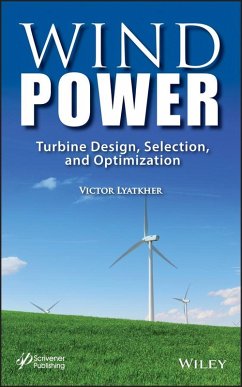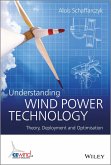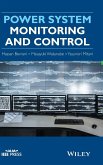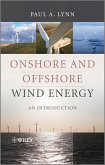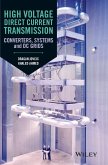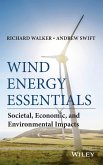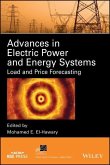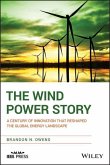An up-to-date and thorough treatment of the technologies, practical applications, and future of wind power, with the pros and cons and technical intricacies of various types of wind turbines and wind power prediction
With the demand for energy outstripping availability from conventional sources such as fossil fuels, new sources of energy must be found. Wind power is the most mature of all of the renewable or alternative sources of energy being widely used today. With many old wind turbines becoming obsolete or in need of replacement, new methods and materials for building turbines are constantly being sought after, and troubleshooting, from an engineering perspective, is paramount to the operational efficiency of turbines currently in use.
Wind Power: Turbine Design, Selection, and Optimization:
Details the technical attributes of various types of wind turbines, including new collinear windmills, orthogonal windmills, non-vibration VAWT wind turbines, and others
Covers all the updated protocols for wind power and its applications
Offers a thorough explanation of the current and future state of wind power
Is suitable not only as a reference for the engineer working with wind power but as a textbook for graduate students, postdoctoral students, and researchers
Wind power is one of the fastest-growing, oldest, and "greenest" of the major sources of renewable energy that has been developed, with more efficient and cost-effective technologies and materials now constantly being sought for turbines and the equipment used with them. Here is a comprehensive and thorough review of the engineering pros and cons of using different kinds of wind turbines in different environments, including offshore. With full technical knowledge, engineers, managers, and other decision-makers in the wind energy industry can make more informed decisions about increasing capacity, cost-efficiency, and equipment longevity.
Covering the various types of wind turbines available, such as new collinear windmills, orthogonal turbines, and others, this highly technical treatment of wind turbines offers engineers, students, and researchers insight into the practical applications of these turbines and their potential for maximum efficiency.
Hinweis: Dieser Artikel kann nur an eine deutsche Lieferadresse ausgeliefert werden.
With the demand for energy outstripping availability from conventional sources such as fossil fuels, new sources of energy must be found. Wind power is the most mature of all of the renewable or alternative sources of energy being widely used today. With many old wind turbines becoming obsolete or in need of replacement, new methods and materials for building turbines are constantly being sought after, and troubleshooting, from an engineering perspective, is paramount to the operational efficiency of turbines currently in use.
Wind Power: Turbine Design, Selection, and Optimization:
Details the technical attributes of various types of wind turbines, including new collinear windmills, orthogonal windmills, non-vibration VAWT wind turbines, and others
Covers all the updated protocols for wind power and its applications
Offers a thorough explanation of the current and future state of wind power
Is suitable not only as a reference for the engineer working with wind power but as a textbook for graduate students, postdoctoral students, and researchers
Wind power is one of the fastest-growing, oldest, and "greenest" of the major sources of renewable energy that has been developed, with more efficient and cost-effective technologies and materials now constantly being sought for turbines and the equipment used with them. Here is a comprehensive and thorough review of the engineering pros and cons of using different kinds of wind turbines in different environments, including offshore. With full technical knowledge, engineers, managers, and other decision-makers in the wind energy industry can make more informed decisions about increasing capacity, cost-efficiency, and equipment longevity.
Covering the various types of wind turbines available, such as new collinear windmills, orthogonal turbines, and others, this highly technical treatment of wind turbines offers engineers, students, and researchers insight into the practical applications of these turbines and their potential for maximum efficiency.
Hinweis: Dieser Artikel kann nur an eine deutsche Lieferadresse ausgeliefert werden.

